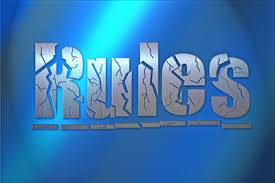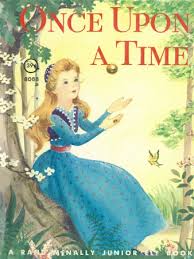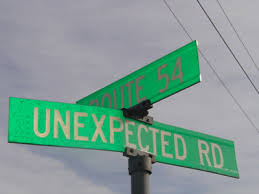by j9robinson | Aug 25, 2010
It’s the end of August and I can feel the tension among parents, and their college-bound seniors, starting to build. It’s great they are thinking about their college essays and future schools. But the rising stress levels can actually harm their ability to find the right school next fall.
I’m no college counselor, but as a parent of a college sophomore and a high school senior, I found a couple of guide books that helped me put the crazy process into perspective.
The first was called “Colleges that Change Lives.” (Click this link to go to their super helpful web site!) The author basically highlighted small liberal arts colleges that were under the radar and all had strong academics, a clear sense of purpose and a friendly student body. He was all about finding the “right fit” for students, as opposed to pushing them into the most prestigious school they could get into or afford. 
Another book with a similar theme and balanced sense of mission is called, “You’re Accepted.” (Click this link to view short video of author-and yoga instructor!-Katie Malachuk, talking about the college application “journey.”) It’s about keeping a focus on the “whole-life” and overall “peace of mind” of students, and keeping the process in perspective for the long-run.

A third title, which I haven’t read but comes highly recommended by reasonable parents I know is called, “Harvard Schmarvard.” Again, it’s about finding the right fit for the student instead of worrying about what is the most impressive school to name-drop to your friends.

by j9robinson | Aug 14, 2010
I just read a memoir where the author shared a piece of writing advice that Toby Wolff gave her. Wolff wrote “This Boy’s Life,” one of the best memoirs out there. Anyway, memoirs are books written about yourself. In a way, college essays are like mini-memoirs. They could easily be a chapter in your own memoir, especially if you share a story in your essay.

All that said, here’s the little nugget of advice Toby Wolff gave the author, Mary Karr. (He sure looks believable to me!) It’s almost too simple to appreciate, until you try writing about yourself:
Don’t approach your history as something to be shaken for its cautionary fruit…Tell your stories, and your story will be revealed…Don’t be afraid of appearing angry, small-minded, obtuse, mean, immoral, amoral, calculating, or anything else. Take no care for your dignity. Those were hard things for me to come by, and I offer them to you for what they may be worth.
(A quote from Toby Wolff in the memoir entitled, “lit,” by Mary Karr.)
To me, the little secret in this advice is to just tell your story in a straightforward, honest way and a lot of your message or meaning or lesson will be naturally revealed. In other words, don’t try too hard to teach or preach your message.
Hope that’s not too heady. Like a lot of simple-sounding advice, it’s harder to do than you think. But worth trying.
 I just found this link to a wonderful blog on college admissions sponsored by the New York Times, called “The Choice.” Here’s a post from another writer talking about how these essays are really like memoirs!
I just found this link to a wonderful blog on college admissions sponsored by the New York Times, called “The Choice.” Here’s a post from another writer talking about how these essays are really like memoirs!
http://thechoice.blogs.nytimes.com/2010/09/07/essay-as-memoir/#comment-58117
by j9robinson | Jul 6, 2010

My students have discovered some of their best topic ideas for their college application essays from their job experiences.
I’m not sure why they make great fodder for college essays, but I believe that simply working for others naturally reveals a complimentary set of qualities, skills and values—humility, determination, perseverance, responsibility, people skills, industriousness, dependability, and the good old work ethic.
It’s no coincidence that these are the same qualities and skills that you need to succeed in college—and what college admissions folks are looking for!
I also think work experiences often fall under the category of “mundane” or everyday topics—which is a good thing!
Former students have written lively essays out working at places like Circuit City, a shoe store, ushering at a playhouse, serving gelato, washing dishes at fancy restaurant, bagging groceries at Ralph’s, working at Dunkin Donuts, etc.
Most work places lack glamour, and that naturally makes them feel “real,” authentic and interesting.
And although we have all worked in our lives, it’s always fun to learn about what it’s like at those places we never worked, no matter how pedestrian they seem (so the essays are naturally interesting to read).
When you think of past jobs, explore them for those other features that make great essays:
- Something happened. (Look for a little story or moment or example to tell)
- There was a problem. (Something went wrong; you messed up; you couldn’t do it correctly; you were scared; someone was in your way; etc.)
- The event or context was “mundane,” meaning simple and common in nature. (in this case, your job or the related problem: cleaning houses, serving burgers, etc.)
- You learned a lesson. (How you turned something negative into a positive.)
- There was something “unexpected” about what happened or what you learned. (A twist/surprise)
- Need more help getting started? My Jumpstart Guide can give you a boost!
This article is still highly relevant, even several years since I wrote it. Check out this article (June 2016) on why Teens Should Have Summer Jobs.
by j9robinson | Jun 14, 2010

It’s time to let go of the 5-paragraph essay format that most English teachers have pounded into your DNA by now.
College admissions essays are very different from the formal academic essays you wrote in high school.
How?
Well, most are called “personal narratives,” which use the first-person to tell a story or explore a personal insight about yourself or something you value. The majority are written in a more casual style (tone, voice and structure).
Like the 5-paragraph essay, however, they still need to make a “main point,” and they require a structure, although one that is much looser.
Here is one simple technique that can give your essay a structural “spine,” yet keep it engaging and breezy in style.
It’s called Show and Tell (not to be confused with the writing axiom, “Show, don’t Tell.”)
It’s really a simplified version of another writing approach I outlined in an earlier post, called The Ladder of Abstraction.
This is how you do it:When you write, make sure to go back and forth between “showing” the reader your point to “telling” the reader what it means.
Write a Show paragraph, then write a Tell paragraph, then switch back to a Show paragraph, etc. (Most 5-paragraph essays start by Telling, whereas this approach starts with Showing.
When you Show, you are focused and specific, often by providing examples and supporting details.
* * *
When you Tell, you are broad and general, and explain the meaning.
* * *
How to SHOW:
- Be specific. (Instead of saying, “The dog was cute.” Say, “The dog, a miniature poodle named Jack, rolled over when you commanded him to ‘Speak!’”)
- Give details. Remember “concrete details”? That just means words that are specific. (Instead of saying, “The trip was awesome,” say “We dove for albacore, built a giant bonfire and road the zip-line ten times.”)
- Use your senses to describe: What do you see, hear, taste, smell and feel?
- Give examples. If you Tell about something, “Everyone was upset by the ruling,” Show them by giving examples of how upset they were, “First, women threw up their hands and screamed. Then, a couple children burst into tears. One man punched the wall.”
- Use anecdotes or “mini-stories” to put the reader in the middle of the action.
- Compare things to make your point. This is another way to Show more clearly what you mean. Instead of, “It was very hot outside.” Say, “It was as hot as a car roof in Arizona.” (Yes, the formal words for these are “similes,” “metaphors” and “analogies.”)
- Zoom in. Like a zoom lens, take a closer look at what you are talking about, show/describe the little things close up.
How to TELL:.
- Be broad and general.
- Explain what something means.
- Summarize a group of smaller ideas.
- Reflect on the larger meaning of something. Look for “universal truths.”
- Analyze what something means.
- Interpret something you wrote.
- Zoom out. Step back from your points and examine the Big Picture.
- When you Tell, you are usually providing “meaning. “What does that mean?”
When you read other students’ sample essays, see if you can spot when they are Showing and when they are Telling. It might make more sense. Then, give it a shot with your own essay.
Check out How to Write a College Application Essay in 3 Steps to get started on your college application essay!
Got questions? I LOVE comments!
by j9robinson | Jun 10, 2010

Image Via The Graphics Fairy
College Application Essays
Write Like You Talk
The voice and tone of narrative essays usually is “looser” or more “casual” than the typical academic essay. To do that, however, you often have to break the rules. Bend them gently and stay consistent. But if it sounds right, go for it!
The best tip for striking a more familiar tone with your college application essay: Write like you talk!
Harry Bauld, who wrote what I think is the best book on how to write college application essays–On Writing the College Application Essay–advises students to stick with an informal voice. He likens this voice to “a sweater, comfortable shoes. The voice is direct and unadorned.” Stay away, he says, from language that is too formal, which he dubs, “tuxedo talk.”
This stiff type of writing is used by people who want to sound smart and important; most popular among scholars (including English teachers!), lawyers and other professionals who want to sound like they know their stuff even when they don’t. It’s a dead giveaway that you are trying to impress–something you don’t want to reveal in these essays, even if that’s one of your goals.
Bauld said: “Work toward the informal. It is the most flexible voice, one that can be serious or light. On top of that bass line, you can play variations–just as you do with rhythm.”
When you write informally, you often need to break some of the rules of formal English. Here are some that are okay to break, but don’t overdo it!

- Use phrases or sentence fragments. Do this mainly for emphasis. Example: “I was shocked. Stunned. I couldn’t even talk. Not a word.”
- End a sentence with a preposition. Again, stick with what would sound normal in conversation. “What do you want to talk about.” Instead of, “About what do you want to talk?”
- Start a sentence with “And” or “But.” Again, use this for emphasis. Don’t over do it! “He ate the hamburger. And then he devoured three more.”
- Throw in onomatopoeia. Remember those words that sound like what they are? Bang. Whack. Whoosh. Zip. Boom.
- Use dialect or slang. Only use these if they are true to the speaker you are quoting. If you are quoting a surfer, it sounds appropriate if they say, “The waves were so awesome!” If they are from the Deep South, they can say, “Ya’ll.”
- Contractions are fine. Again, trust whether it sounds OK within the larger context of your essay. “I didn’t want to go there.” Instead of, “I did not want to go there.”
- Split those infinitives. It’s just not a big deal. “To boldly go where no man has gone before.”
Remember, these are only rules to break if they help create your voice, tone or make a point. Above all, writing casually does not mean you forget about grammar, spelling, punctuation, and all the way you make your writing clean and accurate. You can only bend rule when you know the rules and stick to the important ones.
Also, after you write your rough draft, go back and read it again. Ask yourself: Would I really say that or am I trying to sound smart? If it sounds formal and pretentious at all, try to say it in a more direct and casual way.
For help finding a unique topic and crafting a narrative essay, check out my short, handy new book, Escape Essay Hell!: A Step-By-Step Guide to Writing Standout College Application Essays.
by j9robinson | Jun 9, 2010

College Application Essays
How to Tell a Story
In journalism, writers often use “anecdotal leads,” that is, starting a news or feature story with a mini-story about a real-life event, one that puts the reader in the middle of the action.
Usually, the anecdote only describes a single moment or incident.
But it’s usually a highlight.
Something happened.
Anecdotes make great introductions for college essays. (I believe there’s no better way to “grab” your reader than to start a story–or your essay–at the most exciting part!) So how do you write an anecdote? Here are some tips.
- Start at the peak of the drama or excitement or conflict. Jump right in! (You will just back up and explain it later.)
- Set the scene: Describe what you see, what you hear, what you feel (both literally and figuratively), what you smell and taste, if relevant. These are called sensory details.
- Use the 5 Ws—Who was involved? What happened. Where did it happen? When did it happen? Why did it happen? ( “H”: How did it happen?)
- Paint a picture with your words, or even better, describe a snippet of video. Zoom in on the action.
- Usually the “action” in your anecdote takes place in a matter of a few minutes.
- Throw in a line or two of dialogue to add drama or move the action forward.
- Use “concrete details.” Be specific! Instead of saying, “The dog ran up to me.” Say, “the neighbor’s bull terrier, Brutus, charged me…”
- In general, use short sentences or mix up the short and long.
- Don’t worry about the background or explaining the larger context of the moment. You can back up and explain that in the next paragraph.
- Borrow techniques you find in fiction writing: concrete details, dialogue, proper nouns, descriptive language, emotion, strong characters, etc.
- Use simple language (avoid SAT vocab. words). Write with nouns and action verbs. Go easy on the adjectives.
- If your mini-story (anecdote) takes three paragraphs to relate, try to go back and see if you can cut it down to two or even one paragraph by keeping only what you need to re-create the moment. You will be surprised how you can shorten them, and actually make them better!
“Writing is easy. All you have to do is cut out all the wrong words.” Mark Twain
Here is another post about how to write anecdotes that you will find very helpful, too!
Check out my new video tutorial on How to Write an Anecdote: Part One!
by j9robinson | Jun 3, 2010

Finding the Life Lesson
in Your College Admission Essay
A key component of a powerful personal narrative (essay) is what’s called a “universal truth.”
They are also called “life lessons.”
Basically, when the writer starts to reflect upon the personal lessons learned from an experience, she or he needs to make sure to show why the lesson is important to everyone else as well—that is, why it is true on a universal level.
What is a universal truth?
Often, they are so “true” that they seem almost silly to say out loud.
Examples:
Love hurts.
Be true to yourself.
What goes around comes around.
Cheaters never win.
Never say never.
Sometimes you have to lose in order to win.
You can’t always get what you want.
Face your fears.
What goes around comes around(eg Karma).
You reap what you sow (you get out of life what you put into it).
(Try putting, “In life, …” before the universal truth to test it out.)
Read some sample essays and see if you can find the “universal truth.”
In your own college application essay, you don’t necessarily have to state the universal truth, however, at some point you should at least touch on it, usually toward the end.

If you need help getting started with your college application essay or personal statement, try my Jumpstart Guide.
by j9robinson | May 27, 2010
I have mentioned these titles before, but these are my three favorites:
There are a jillion of these how-to books on the market, and all have helpful things to say. However, the advice in these books is spot-on, and they include helpful sample essays and are inspiring to read. Both are available at Amazon.com and are inexpensive.
Reading sample essays is one of the best ways for students to get ideas for topics for their own essays, as well as get a feel for the more casual style and tone of these pieces. I also believe both authors do a good job of taking some of the pressure off these dreaded assignments. The Harvard collection also includes wonderful analyses at the end of each sample essay.
by j9robinson | May 19, 2010

I just went back over college essays my clients wrote over the last several years.
Despite the classic list of what not to write about (see previous post), I would say many wrote about mission trips, volunteering activities and sporting experiences anyway.
Some pulled it off, however, because they focused in on specific incidents and what they learned from those.
Others, however, were pretty flat.
My favorite essays, I noticed, almost always involved something unexpected, whether it was something that happened to the writer or how they reacted and learned from it.
They also included anecdotal leads. For example, here are two topics that resulted in strong essays:
1. One student wrote about how things always went his way, and how he was always top of his class, the star athlete and picked for leading roles in the drama program.
His essay told the story of how he expected to get the star role in his senior play, and was stunned to learn he got a lesser role. (this was the “unexpected”)
In his essay, he developed what he learned from that experience.
In a natural way he was able to highlight his talents, yet come across as humble and likable at the same time.
(He also started his essay with a simple anecdote of the moment a friend shouted out to him that he did not make the lead role. This short, narrative introduction included dialogue and captured with high emotion his huge disappointment. A perfect “grabber” intro!)
2. Another student wrote about how she injured her ankle playing soccer on the varsity team, and was out for the entire season, yet learned more sitting on the bench that season than she would have playing. (also, the “unexpected”)
Her essay focused on how she discovered a new perspective on her team and the game by simply watching.
Again, she showcased her talents, but showed how she was able to turn something negative into a positive.
(she also started her essay with a short narrative anecdote—with strong imagery on the setting, dialogue, etc—focusing on the moment she was injured, which added emotion and drama to his essay.)
What these effective essays had in common:
- They both included something unexpected and how the writer learned something from the experience.
- They both focused on one incident and expanded that into larger lessons learned.
- They both pulled the most intense moment to describe in their introductions, which made their essays full of lively writing (vivid details, descriptive language, colorful dialogue, etc.) highly readable.
What is unexpected about you?

by j9robinson | May 19, 2010

I realized today that I never shared a list of topics that usually result in lame essays. (It feels negative to emphasize this list of no-no’s, but it can save students a lot of time if they know to avoid these early on.) You can make any topic interesting, of course, but if you want to give yourself a break, stay away from these potential losers:
- Listing accomplishments. Don’t even think about just rattling off amazing things you have done, people you have met or places you have visited, etc. Way too broad and BORING!! Bragging is not a good way to make friends!
- Death, divorce, tragedies in general. It’s not so much that these can be downers, but they’re such powerful topics that they can be very challenging to write about. (the “death” topic applies to family, friends and even those beloved pets.) HOWEVER, if you have lost someone dear to you and it has rocked your world–you probably should try to write about it. Just try to make the essay more about your feelings, how it affected you and what you learned than just about the person you lost.
- “The most important thing/person in my life.” Again, this is just too broad and loaded, whether you want to talk about God or your mom or your best friend. Yawn!!
- Sports. The thrill of victory. Agony of defeat. Done. Dull. Avoid if possible.
- Humor. Although a story you convey in one of your essays may be funny, do not try to be funny—there is a difference. Keep your deliver straight.
- “I’m so lucky.” Many college-bound students are privileged to live in beautiful, affluent towns and cities, and that’s great, lucky you!, but talking about this is plain boring.
- Do-good experiences. These can range from mission trips to Costa Rica to volunteering tutoring through the local schools. Although essays can certainly involve these experiences, the topic needs to be on a specific experience within that broader trip or program. There is a huge difference. Essays that basically describe trips or volunteering are boring. Specific, unexpected things that happen during them, however, can be great topics!
- Sensitive topics. Since you are writing for an audience who you want to want you, it’s important to use your common sense in terms of topics that have a high tendency to make people angry or upset because they do not agree with your opinion. Politics and religion are particularly provocative. No matter what, don’t preach about any topic!
- The un-essay. Many students, often some of the brightest, have a fundamental reaction to these essays and the assignment to reveal yourself in 500 words, so they want to get creative and in-your-face since that feels more genuine to them. They want to write in stream-of-consciousness or be sarcastic, etc. I totally understand this reaction. However, you must remember your goal with these essays: to get accepted! Save the radical expression for after you get into college.
- Illicit behavior. Drug use. Sexual activities. Arrests or jail time. Even if you stopped doing these illegal or unethical things, it’s still not the best idea to bring them up here. You can write about life missteps as long as it’s clear you have regained your footing! If nothing else, the admissions folks might just wonder about your judgment in general for not steering clear of these topics.
Now that you know what
not to write about, you can learn more
about how to find great topics. In general, don’t try to impress your reader–it usually backfires. Instead, focus on something that happened, how it affected you and what you learned. Those stories are naturally interesting and impressive.
If you want more help getting started writing, check out my Jumpstart Guide for writing college application essays.
Also, my new ebook guide, Escape Essay Hell!, will walk you through 10 fast and easy steps for finding a unique topic and writing a narrative essay.


















